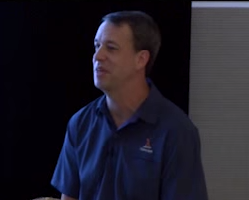for_each_arg -- Eric Niebler
Eric Niebler picked up the Sean Parent's challenge regarding his for_each_argument tweet.
for_each_arg
by Eric Niebler
And after several iterations between Sean and Eric this is the beautiful result:
template<class F, class...Ts> F for_each_arg(F f, Ts&&...a) { return (void)initializer_list<int>{(ref(f)((Ts&&)a),0)...}, f; }


